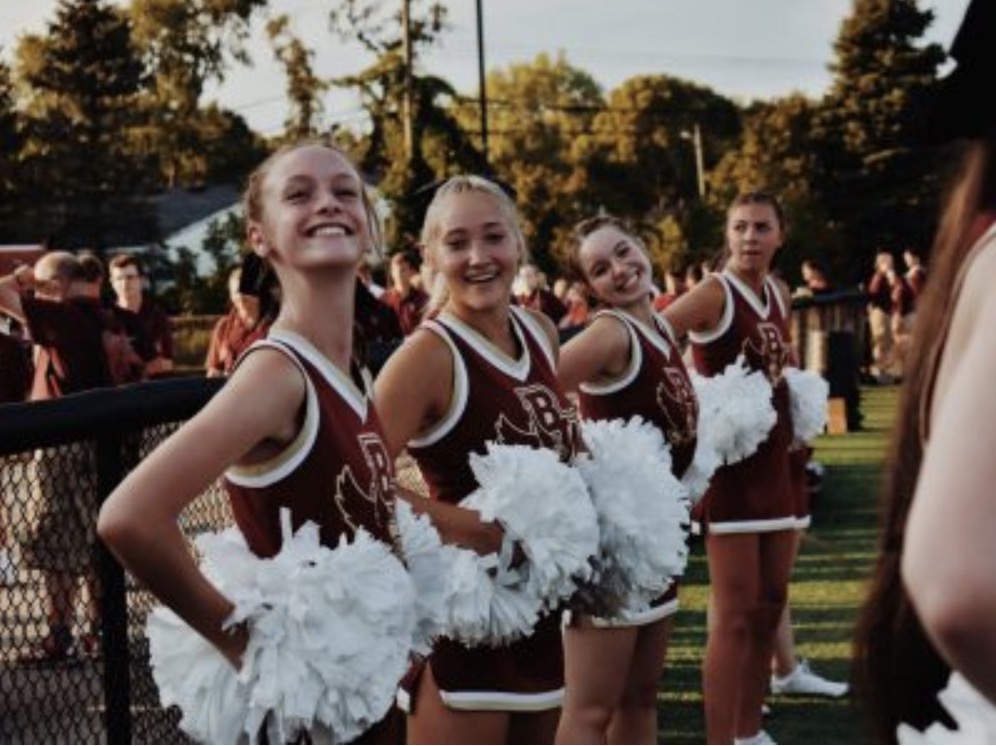Your cart is currently empty!

The Funny Story of How NOT Making the Cheerleading Squad Changed My Life
by
So, funny story (at least, funny for anyone who has known me for the last 25 or so years…): When I was 11 years old, just an awkward, shy sixth grader, I tried out for the cheerleading squad. Now, for anyone who met me at any point after this moment, this makes no sense. As a teen, I grew into the anti-athlete. I hated all things athletic, I feigned illness to avoid running the mile in gym. I came to cycling in my 20s, and for years, I’ve complained that I wish I had found cycling sooner. Recently, I learned that cheerleading is likely to blame for why I didn’t find cycling sooner. Not because I made the squad. To be clear, I completely and totally BOMBED the tryouts, even looking back objectively and with a lot of compassion for my young and uncoordinated self.
No, I didn’t find cycling sooner because the day that I didn’t make the cheerleading team was the day that I decided—no, I knew with absolute certainty—that I was Not An Athlete.
This identity stuck with me well into my 20s. Even when I was racing cyclocross in addition to Ironman triathlon, it was always with an attitude of ‘not being one of them.’ Cyclocross racers were totally punk rock (at least, a few guys on my team were) so that made it more palatable. In triathlon, I wore goofy swimsuits and racing attire—think cotton tshirts with band logos—to avoid feeling too athlete-y.
I was 30 before I finally came to terms with the idea that I just may have been an athlete all along.
Recently, I was interviewing a child psychology expert for another article, and we were discussing perseverance, specifically in the context of “how do you teach kids perseverance after a failure or when they’re not getting success?” After all, there does come a point where a kid is doing more harm than good pushing through something that it makes no sense for health or well-being to push through.
I mentioned not making the cheerleading team as a way to ask a question about failure. She came back to me with a question of her own: How old was I when I didn’t make the team?
I told her I was 11 at the time.
Her response? Middle school-aged kids are at a point in their lives where, unlike any other time, identity is black and white. It’s how our brain chemistry works at that age. Don’t make the team? You’re not an athlete. Or, if I’d interpreted it another way, I don’t fit in with that group of girls. (Confession, I also interpreted it that way. And held a very pointless grudge, or at least, allowed some friendships to fade due to what I thought was embarrassment but now I see as a crisis of identity.)
Instead of seeing that cheerleading tryout as a single data point on a whole life that could otherwise be deemed athletic—I was a fast runner in gym class, a good soccer player with my friends, and rode bikes with my dad and my neighbor often until that point—I saw it as this universal sign that I simply could not be an athlete.
So, if you’re in these middle school years, I just wanted to drop this story in here as a gentle nudge to let you know that you may not feel like an athlete (though if you do, that’s awesome!) but you can absolutely be one. I say this all the time now when I’m talking to groups: You can be WHATEVER you want, and you can be many things all at once. You can be a bookworm and love comic books and 80s punk rock music and be a cheerleader and a mountain biker. You can crush it in math club and on the soccer field, and also be amazing at playing the kazoo. You don’t need to confine your identity to one particular thing—and if something doesn’t go the way you hoped, if you don’t make the team or do well on the test or nail that skill on the bike or win that race, you’re STILL the same person. Don’t let any outside force take your identity from you or allow you to be defined.
XO,
Shred Girls author Molly Hurford
